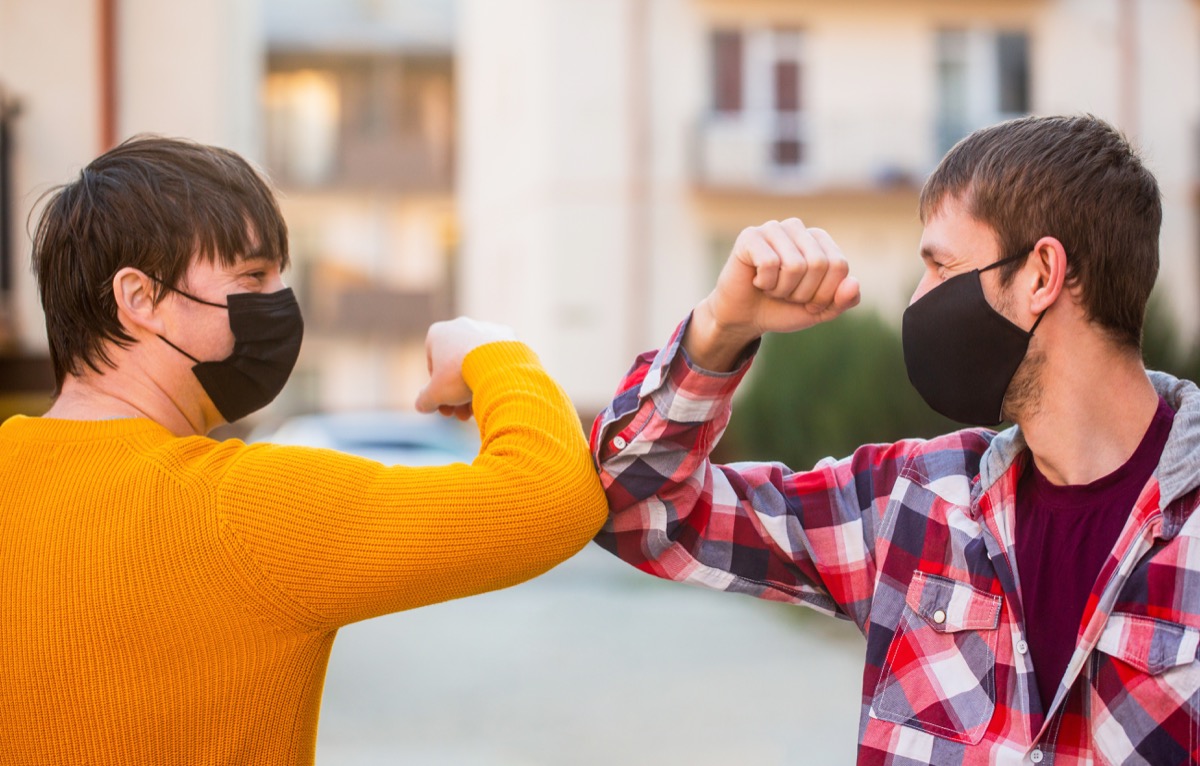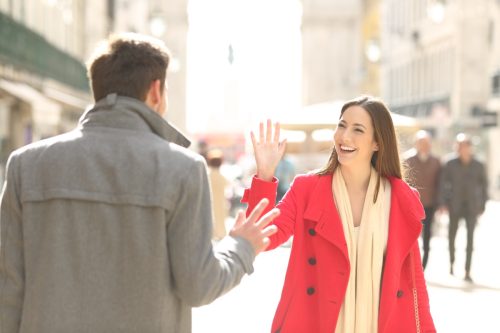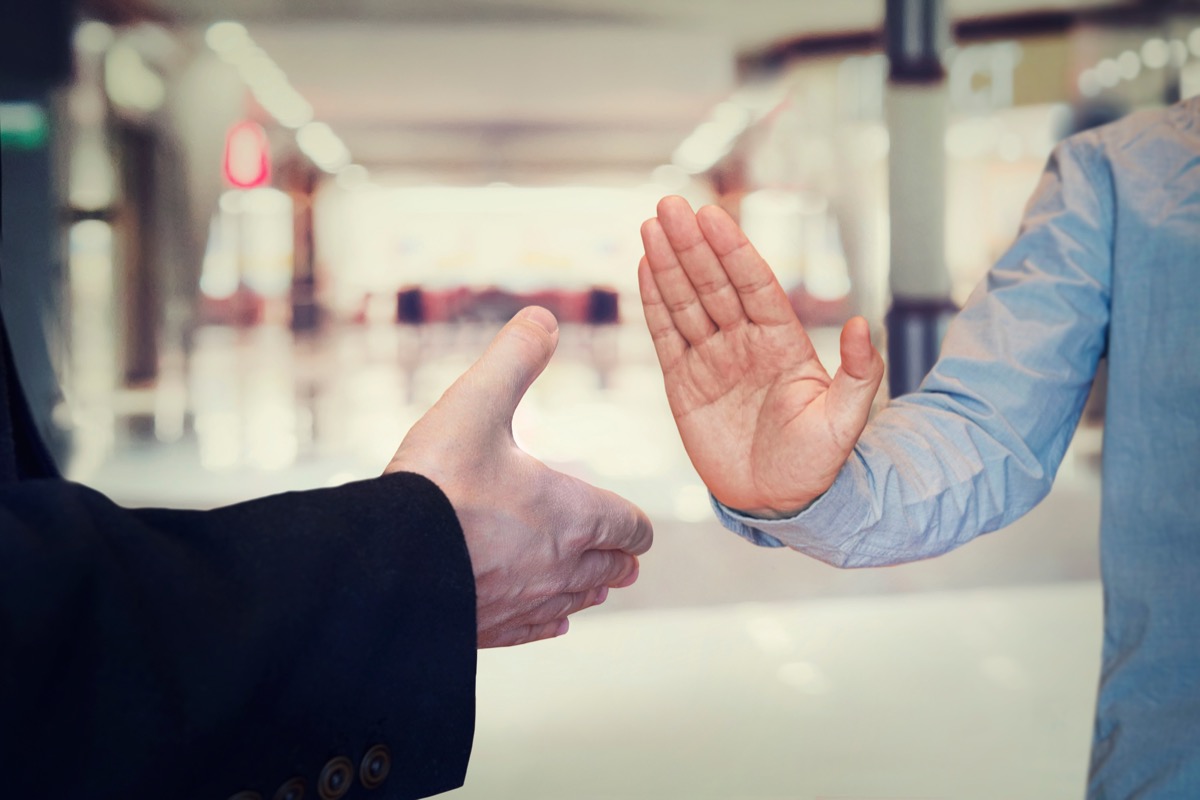4 Times You Should Never Shake Someone's Hand, Etiquette Experts Say
Make a good first impression by avoiding these common mistakes.

In most social and professional scenarios, the handshake is considered a standard greeting—and one with high stakes. Done right, the gesture can convey warmth, confidence, and interest in the other person, yet etiquette experts agree that there are certain instances in which a handshake can send the wrong message, or even cause offense.
"Getting it wrong from the get-go is the definition of a bad first impression," says Lisa Mirza Grotts, an etiquette expert widely known as the Golden Rules Gal.
But when exactly should you skip a handshake in favor of another greeting? Read on to learn which four times you should never shake someone's hand, and why the gesture falls flat in those moments.
READ THIS NEXT: The 4 Questions You Should Never Ask Your Server, Experts Warn.
4 Times Not to Shake Someone's Hand
1. The other person has their hands full.

A handshake is appropriate in most social situations, but experts say that there's one logistical scenario in which this rule would no longer apply.
"It would be inappropriate to try to shake a person's hand if their hands are full," notes Jules Hirst, founder and etiquette expert at Etiquette Consulting, Inc and co-author of the book The Power of Civility. "You do not want to inconvenience them by having them put down what they are carrying to shake your hand."
Jodi RR Smith, president and owner of Mannersmith Etiquette Consulting, says that if this situation arises, it's best to "be as overt as possible" about your intention to greet them warmly.
You might say: "Hello! Usually I would shake your hand, but it looks like you have your hands full. So nice to meet you," she suggests.
READ THIS NEXT: 6 Places You Should Never Tip, According to Etiquette Experts.
2. Someone is feeling sick.

Shaking hands is considered polite, but not if it puts either person at risk of spreading illness, the experts say.
"Anyone who is clearly ill would be better off staying home, but if they do decide to interact, they should not be shaking anyone's hand," says Smith.
This also applies if someone is not sick, but is scared of the current COVID climate. "I know more than one person who still does the 'bump' because of COVID fear. You learn to go with it and respect their choice," says Grotts.
"Pre-2020, people did not give this much thought to handshakes, but they do now. Every doctor says they don't shake hands, and I understand why," Grotts adds.
3. They're showing disinterest through body language.

When it comes to introductions, it's also important to read the room. If someone appears to be disinterested in shaking hands or uncomfortable with physical contact, it's best to skip it.
"If you observe someone's body language to be non-interested in shaking hands then you should not attempt to shake hands," says Hirst.
Some common cues that might tip you off include the person "keeping their arms at their side, nodding their head to greet you, putting their hand over their heart or putting both hands together over their chest (aka the 'namaste' position)," she explains.
Any one of these gestures might signal that this person does not want to shake your hand and has acknowledged you in their own manner.
For more etiquette advice delivered straight to your inbox, sign up for our daily newsletter.
4. It's culturally or religiously inappropriate.

Shaking hands is common in many cultures—but in some, it's actually seen as a sign of disrespect, or expressly forbidden. Hirst and Smith agree that it's important to keep culture and religion in mind when greeting someone new.
"Do your due diligence on cultural customs as certain cultures do not shake hands," suggests Hirst. In particular, she notes that some religions consider it inappropriate for unmarried or unrelated men and women to touch, so this is a scenario you would want to be especially sensitive to.
Smith says that there may be outward signs that a person may be less inclined to give a handshake for religious reasons.
"Note when the other person is wearing religious garb, head coverings, or obviously modest attire. In these cases, it is better to wait to see if they extend their hand or to just ask if they shake hands before touching them," she says.





















